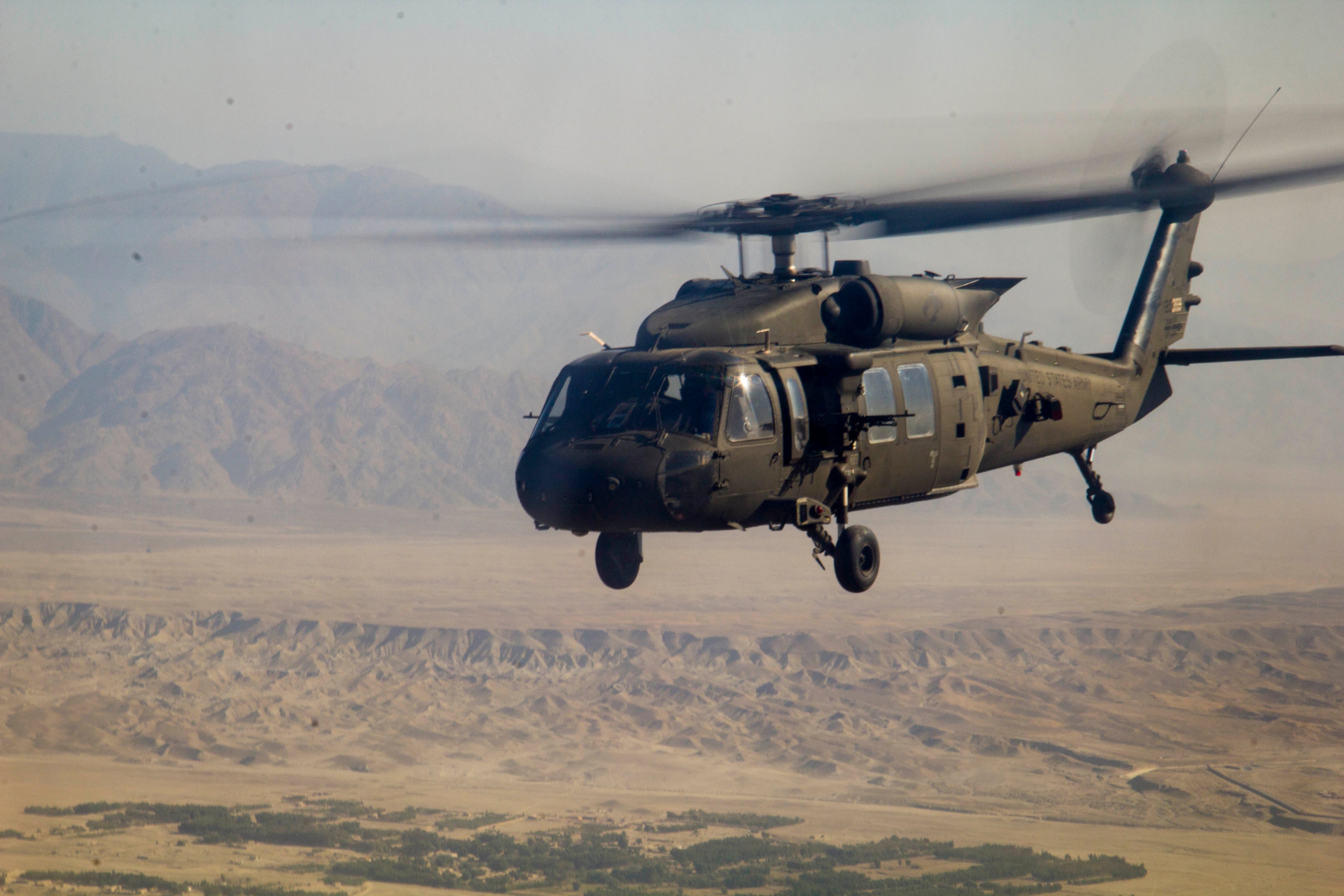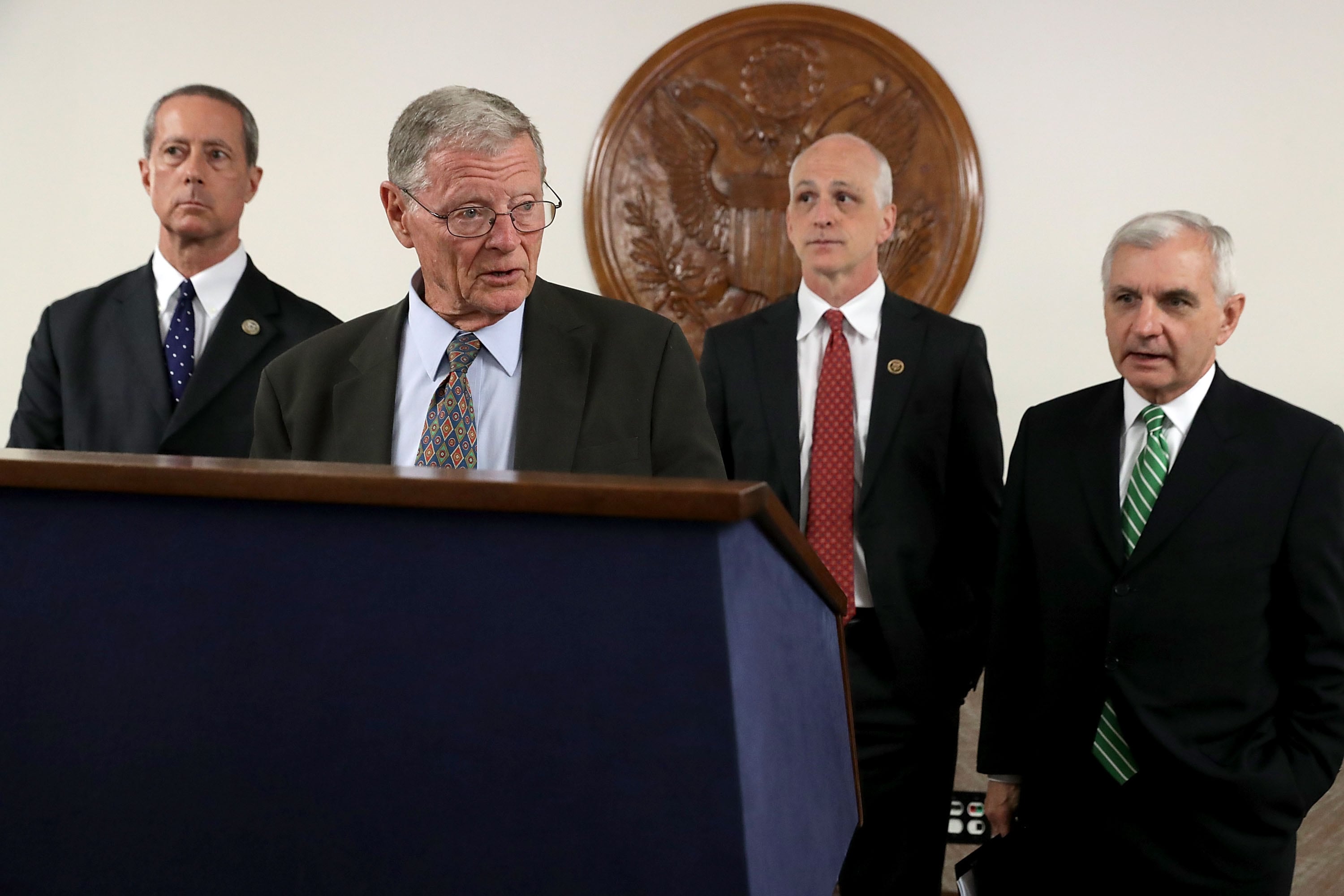House Republicans’ top defense leader warned Wednesday that America’s military “will be tested” in the wake of President Donald Trump’s decision to withdraw U.S. forces from Syria earlier this month.
“It may well be by Iran in the Gulf. It may be by Russia and (leaders) in Syria, it may be by terrorists in Afghanistan or elsewhere, or someplace else in the world,” said Rep. Mac Thornberry, R-Texas, and the ranking member on the House Armed Services Committee. “But we will be tested.”
Thornberry’s comments came after his weekend trip to Afghanistan and Jordan as part of a congressional delegation meeting with foreign leaders in the wake of Trump’s recent moves in Syria, decried by critics as abandoning Kurdish allies who helped in the regional fight against Islamic State group forces.
RELATED

The longtime caucus leader on military issues, who earlier this month announced his decision not to run for re-election next year, has backed new sanctions on Turkey for their military interventions into Kurdish-held areas of Syria following the United States’ withdrawal.
In a press conference with reporters, he warned the consequences of the troop moves will be far reaching, in part because of the “unpredictability” many troops in other conflict zones now face about their missions.
“There is still a significant terrorist threat to our homeland emanating from Afghanistan,” he said. “Our folks and the Afghans have done a good job of suppressing that threat to a large extent, but it is there.
“Obviously there is the potential that if you have ISIS (fighters) leaving Syria for whatever reason, some of them could go to Afghanistan and the threat is increased. There are people who are there who are still plotting and planning to try to attack us here.”
However, Thornberry’s message to colleagues is not to attack or attempt to reverse Trump’s military personnel moves, but instead to finish congressional work on the annual defense budget.
That appropriation has been stalled for weeks over issues related to Trump’s decision to use military construction money to pay for his controversial southern U.S. border wall project. A short-term budget extension passed in September will keep defense funding at fiscal 2019 levels until late November, unless another budget deal is reached before then.
RELATED

“The most important thing we can do is put aside the squabbling and fund the military for the rest of the year,” he said. “(The Army) had planned 79 new (program) starts in the coming year. And they can't do any of that, we've already messed that up.
“We can criticize the president, I'm for sanctions on Turkey and all the other things, but the number one thing Congress needs to do is its job. Because I promise, we're going to be tested. And we need to have things in order for for when that occurs.”
Thornberry was the only Republican on the overseas trip, led by House Speaker Nancy Pelosi. He said he agreed to take part to get the most recent assessment of operations overseas, and to personally thank deployed service members for their work.
“I believe it’s very important for them to hear on a bipartisan basis that whatever differences there are in Washington, D.C., whether it’s the Syria decision or impeachment or all the other nonsense going on, that we appreciate them and we support them,” he said. “But nothing says that better than to fully fund (the military) for the year.”
Leo covers Congress, Veterans Affairs and the White House for Military Times. He has covered Washington, D.C. since 2004, focusing on military personnel and veterans policies. His work has earned numerous honors, including a 2009 Polk award, a 2010 National Headliner Award, the IAVA Leadership in Journalism award and the VFW News Media award.








